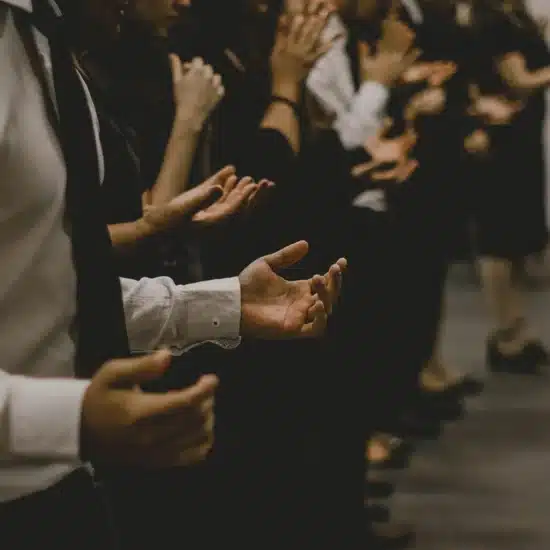
Every so often I have the opportunity to teach a very basic introduction to Baptist life for prospective and new pastors entering into local church ministry. For many, this is a review of basic tenants and historical highlights learned in a Baptist history and polity course in seminary or college. For others, it is new(ish) material because they are moving from a different denomination into a Baptist congregation. I like to emphasize how Baptists are confessional, contextual, and communal (also I apparently like to demonstrate how much we also love alliteration).

Greg Mamula
Baptists are confessional because with words and deeds we confess our loyalty to King Jesus through prayers of confession and statements of faith about the Trinity, Scripture, Church, faith, polity, and practice. While not broadly binding or creedal in nature, these documents do reflect what a specific group of people believed at a certain time in particular contexts. They are a record of our story and ability to bear witness to the faith in all times and places.
Contexts matter because nothing about Baptist life occurs in a vacuum. Every interpretation of scripture is shaped by time, place, and people. This is why Baptists must routinely review their statements of faith, polity, and practices for accountability and adaptability. It is why Baptists around the world look so different from one another in practice while being capable of holding shared theological beliefs.
Equally important to confession and context, but often sacrificed on the altar of autonomy, is our need for community. The earliest Baptists knew this well and from the very beginning formed associations of congregations for the purpose of shared mission and ministry. Baptists truly believe that we are better together. Even today foundational Baptist values of the priesthood of the believer and the autonomy of the local church are to be held in tension with our need to gather with other believers in the local church and those churches gathered together in various sorts of networks to engage in ministry together beyond what an individual person or single church can achieve alone. We also recognize the gifts and faithfulness of our Christian siblings around the world as ecumenical partners in God’s Kingdom.
We are all aware of the intense fracturing at every level of our society. The COVID-19 pandemic revealed our shared weaknesses. In many ways, it created space for confession and repentance. Now as we continue to move toward a different future together, one of the most important aspects of a healthy future will be our ability to shape new communities while strengthening existing ones.
Because our Baptist DNA is confessional, contextual, and communal, I believe we are uniquely positioned to be the hands and feet of Jesus in our ever-changing missional landscapes.
This article is part of a series on the future of the church in which I am sharing six observations I think we need to focus on to be the faithful presence of Jesus over the next decade:
- Allow the full narrative of scripture to shape your holy imagination
- Learn to listen and respond well to your community
- Build more and better networks
- Recognize the gifts and talents of all people
- Invite people from isolation to inclusion
- Develop multiple revenue streams
Feel free to share with me your observations of what you see coming and where you feel the Spirit is leading.
Today we are going to focus on inviting people from isolation to inclusion.
Invite people from isolation to inclusion.
Since the COVID-19 pandemic began one of the recurring observations has been the pain that comes along with isolation. Isolation is different from loneliness. Myles Werntz distinguishes the two in this way, “Isolation… refers not merely to a phenomenon but to a state that dictates how we in turn view the self and the activities we do. Isolation names a condition in which, because of sin, the human exists divided from others and from God. Because of this division, we share a common world sustained by God, but we view one another as competitors in that world, each of us closed off, threatened by all others, and sustained fundamentally by our own efforts… loneliness describes a feeling that ebbs and flows with the presence of others. Isolation names a pervasive state even in the presence of others.”
Isolation is damaging to churches and the communities in which they dwell. Churches thrive through connection, support, and shared experiences and beliefs. When people and churches are isolated they lack these essential elements. Furthermore, isolation leads to a lack of accountability, making it easier for individuals, systems, and communities to engage in destructive behaviors. Our news cycles are filled with stories of people and systems who have caused mayhem and destruction to their cities and communities of faith.

Pavlos Vaenas / Unsplash
Isolation is an all-encompassing condition that must ultimately be healed by the grace of God. The church of the present and near future must be places that foster a sense of connection and support to prevent isolation and its many ill effects. We as Jesus followers can bring the good news of community inclusion to those experiencing isolation. It will require Christians to do more than share a tract or memorize a few spiritual laws. Being on mission with God and naming the reality of isolation, requires looking for ways to be agents of healing. It means owning up to our sins and faults and confessing our need to be better. It means identifying how systems cause pain and injustice, but also working toward reconciliation or replacing them with new ones that usher in justice and prosperity. It means building communities that work for the good of all our neighbors not just the ones who look and think like us already.
Building inclusive communities requires us all to confess Jesus is Lord of the community. You cannot have a true community marked by justice, peace, and love without the story of the life, death, resurrection, ascent, and return of Jesus. From isolation to inclusion means we are not just saved from something, but rather saved for a life together in Christ.
The old adage is that Rome was not built in a day… well it also did not fall in a day. We are living in a time as exiles within an empire that thrives on isolation. We must confess our participation, repent, and begin building new communities.
As followers of Jesus, we must continue to partner together in networks of churches, denominations, and para-church organizations. But if we are going to have the greatest impact possible we must also partner with our surrounding neighbors, civic organizations, schools, volunteer networks, and more just as our African-American siblings have done so well for so long. Eat together at a table and share your stories. Build your community one meal at a time. It will take years perhaps decades to establish these new communities. As you hear each other’s stories you will be moved to walk with one another in mission and ministry. However, before you begin founding something new look around to see if there are already partners at work in your community. Your local church does not need to have its own version of everything when so many groups are already working and well-funded. What they long for someone to bear witness to the presence and resurrection of Jesus. Engage in community-based initiatives, partner with local businesses and restaurants, volunteer at organizations doing good, establish creation care programs, start a neighborhood sharing program, and connect your church’s social media platforms to local organizations and a thousand other ideas.
It is time for us to confess our love of Jesus in our contexts while building new communities.
Rev. Dr. Greg Mamula is the Associate Executive Minister for the American Baptist Churches of Nebraska, and a contributing writer for Word&Way. He is the author of Table Life: An Invitation to Everyday Discipleship, published by Judson Press in print and e-reader versions from online distributors including Amazon. To learn more information visit www.table-life.org.






